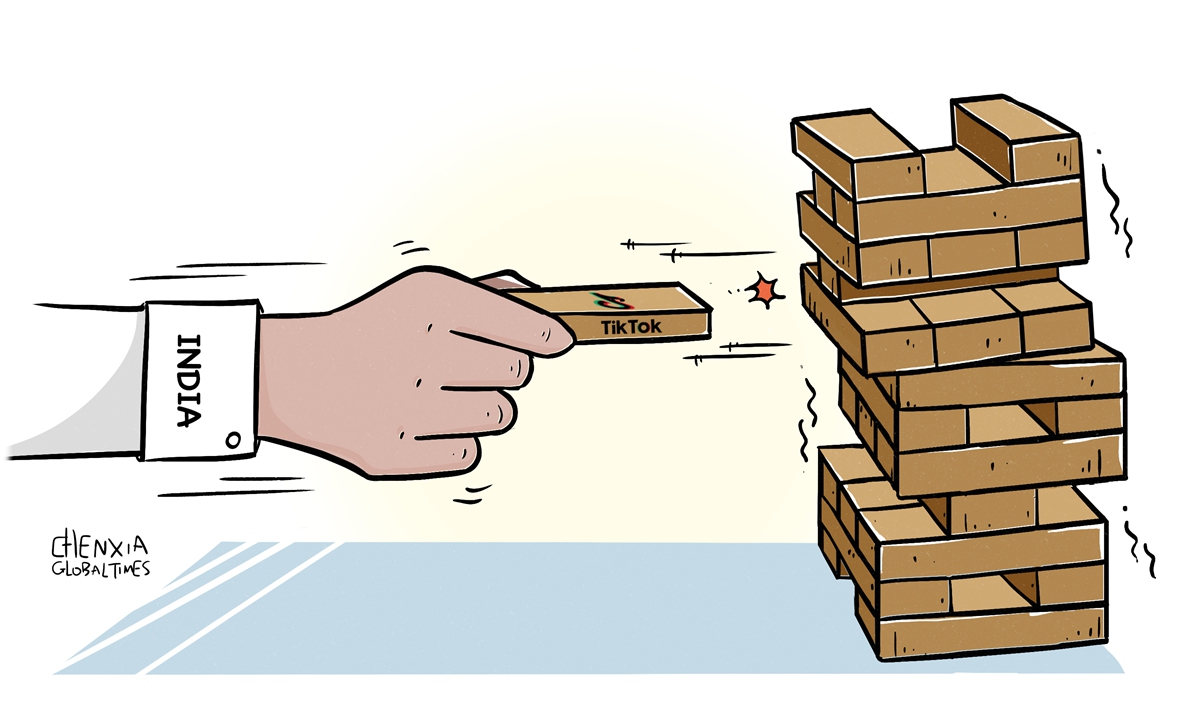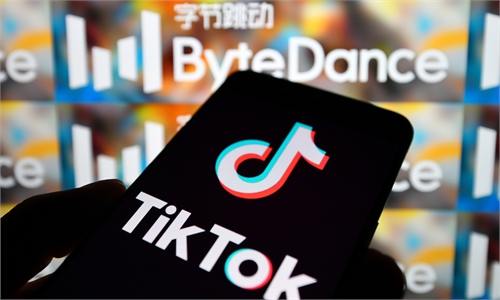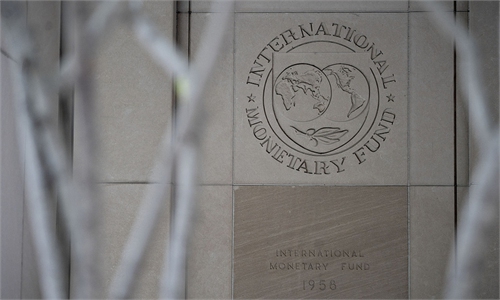
Illustration: Chen Xia/Global Times
TikTok, the popular short-video app banned in India since 2020, has reportedly closed its remote sales support hub in India and laid off its roughly 40 remaining workers in the country. No further details were released but the current reports have aroused widespread concern among people who are following the country's internet economy. Some analysts said if proved true this might mean TikTok's hope to resume operations in India is very slim.Citing a TikTok representative, the South China Morning Post (SCMP) reported on Monday that TikTok has taken the decision to close its India remote sales support hub which was put in place at the end of 2020 to provide support to TikTok's global and regional sales teams.
Indian media Economic Times said TikTok fired its entire India workforce last week, citing sources aware of the development. "As many as 40 people were given the pink slips," the report said.
TikTok, owned by Beijing-based ByteDance, was banned in 2020 as part of India's crackdown on Chinese apps. After the border clash with casualties in the Galwan Valley in June 2020, the Indian government banned 59 Chinese-owned, mobile apps including TikTok and Tencent's WeChat, claiming the applications are engaged in activities "prejudicial to sovereignty and integrity of India, defence of India, security of state and public order."
The ban is a sheer act of discrimination in the guise of so-called national security. India is one of the app's major overseas markets by downloads, with a reported user base of over 200 million. The short-video platform did well in localizing its services in India and had many users in rural areas. The ban on TikTok has caused economic losses to Indian people who make a living on the platform.
Although New Delhi's crackdown on TikTok is detrimental to Indian economy, the government seems not ready and willing to abandon protectionism and to refrain from destructive practices affecting the development of its internet economy.
The widespread speculation that TikTok will completely withdraw from India has sounded an alarm bell for a disappointing internet economy in the South Asian country. India has an ambition to become a new powerhouse in the virtual internet world, but excellence can't be built by banning the competition from other countries.
There is no need to deny that the economic growth of India over the past decade has been truly an inspiring story. Home to 780 million internet users, the second-largest internet user base in the world, India is entitled to pursue its internet dream.
The Indian government has launched the Digital India programme with the vision of transforming the country into a digitally empowered society and a knowledge-based economy. After years of efforts, India's internet economy has already met some basic conditions for its economic take-off, however, with the rise of economic protectionism, India's internet economy has a broken wing.
In 2021, CBS news reported that TikTok had surpassed Facebook and Google as the most popular destination on the internet, citing data from a technology firm that tracks online activity.
TikTok has accumulated valuable experience in emerging internet-related sectors which represent the future development of the global economy. It could create a demonstration effect and other tech newcomers may think twice if the popular short-video app was extremely disappointed at the Indian market.
Over the years, India's digital economy agenda has included priorities such as building digital infrastructure, strengthening supply chains, and ensuring cybersecurity. Now, the country should acknowledge the critical need to respect free market competition and the importance of attracting international investment, otherwise, even though India's internet economy can continue to develop, it will never become a world-class excellent existence.
The author is a reporter with the Global Times. bizopinion@globaltimes.com.cn



